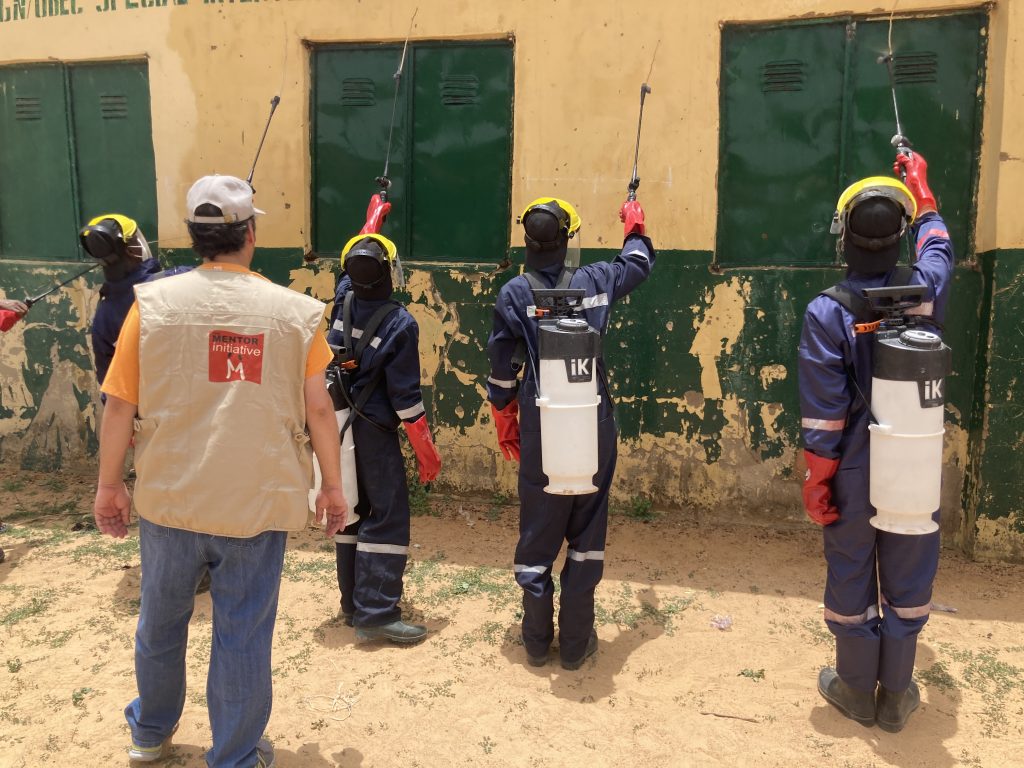(May 2022) The MENTOR Initiative’s latest Indoor Residual Spraying (IRS) programme is underway in Borno State, Nigeria, where malaria is the number one cause of morbidity and death.
This is the second year of this large-scale spraying programme to protect around 400,000 people in camps and communities in the region ahead of the rainy season.
“Indoor residual spraying is one the important component of Integrated vector management (IVM)1 that shows high impact, especially in emergency context where populations are more exposed to vectors.
“IRS is a well proven and recommended malaria prevention approach using safe and effective WHO approved insecticides. When over 80% of structures in a community are sprayed correctly, the risk of malaria infection decreases by over 60%. It is the most rapid prevention option for malaria.” – Richard Allan, CEO, The MENTOR Initiative.
Working closely with various stakeholders such as the Health Ministry, religious and local leaders, village heads and local politicians, MENTOR has communicated the benefits of IRS and built trust with communities, to ensure take up is high and the programme effective.
Over 100 members of the local community are trained and equipped to do the spraying during the six-week programme. Each team is made up of a sprayer and a mobiliser who work under a supervisor.
Lesha Umar, who has five children lives in the Bama area, having fled to Maiduguri three years ago due to the conflict caused by the militia group Boko Haram. She said: “I am very happy to have had my home sprayed. I heard about it from last year’s programme in 2021, and was hoping my house would be targeted this year. Before the spraying there were lots of insects, including mosquitoes, in the house, in the food, on clothes, in the bed – and now they are gone. I contracted malaria last year when my house was not sprayed.”
The insecticide called Fludora Fusion also kills flies and other insects, preventing diseases such as diarrheal and skin infections, as well as improving living standards. It is manufactured by Bayer who have made an in-kind contribution of this WHO recommended new class of insecticide to the programme.
The programme is funded by United Against Malaria (UN Foundation) and USAID’s Bureau for Humanitarian Assistance (BHA).
What is Integrated vector management (IVM)
Vector management is the main method for tackling many infectious diseases such as malaria, dengue and other Neglected Tropical Diseases (NTDs)
When effective methods of targeting mosquitoes, flies, ticks, bugs and other vectors that transmit pathogens are well implemented, lives are saved and the health of millions protected.
IVM is the decision-making process that encourages optimal use of resources for efficient, cost-effective and sustainable vector control. (WHO)

